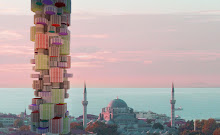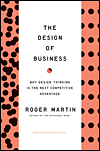It has taken me a while to comment on Dubai's current economic crisis because I really wasn't surprised. The model and speed they were using with which build their city were unsustainable in so many ways. Dubai has been up to now a city built in part by incredible PR and marketing. After Sheikh Mohammed bin Rashid al Maktoum made the momentous decision in 2002 to allow foreigners to buy property in Dubai, a lack of proper regulation created a wild wild west environment, where anything goes. Small, unscrupulous operators were able to sell apartments before the ground was even broken; oftentimes before even owning the land the apartment building was supposed to be built on. Dubai's government utilized the same strategy to build the Palm Jumeirah when they could not get bank financing. A lack of building codes and laws encouraged shoddy work and cost cutting. In spite of that real estate values skyrocketed. Speculators flooded the city. Poor destitute laborers worked around the clock in 40 C temperatures, under slave like conditions to ensure that these buildings were constructed fast enough. Obviously, this method of developing a city needed to be re-examined and revamped.
While most people in world started to take note of Dubai this past decade, Dubai has been building itself as an entrepreneurial hot spot since the late 1800s. In 1894 Sheikh Maktoum bin Hasher took over as ruler of Dubai and launched the plan to make Dubai the most business friendly port of the lower Gulf. He lured disgruntled merchants from Iran by abolishing the 5% customs duty and slashed fees turning Dubai essentially into a free port. Sheikh Maktoum also sent out his agents to recruit the biggest merchants in surrounding countries to Dubai with promises of free land, the ability to bend the leader's ear and a hands off government policy. This strategy is not so different from what Sheikh Mohammed bin Rashid al Maktoum, the current ruler of Dubai has done with Internet City, Media City and in Dubai's International Financial Center, earlier this decade - where he attracted huge global tech, media and financial companies like Microsoft, Oracle CNN, Reuters, and every giant investment bank to open up operations in Dubai with promises of free rent, no import duties, no tax and an eradication of companies law which forbade majority foreign ownership.
When Sheikh Rashid bin Saeed al Maktoum, the grandfather of modern Dubai, proposed the idea of building the world's largest man-made port in the 1970's in Jebel Ali 35 km southwest of Dubai people thought he was crazy and wasteful but today it is one of Dubai's greatest financial assets. Now I'm not equating the building of the port with the construction of giant palm island after island (although it did put Dubai on the world stage), but Dubai is no flash in the pan.
I agree with BusinessWeek's recent article "Why Dubai Matters" by Stanley Reed, when he writes that Dubai is an important economic experiment in a strategically vital region. "The humiliating debt implosion aside, the emirate remains the most dynamic business hub in the Gulf" and remains a model for surrounding countries. According to Reed, Dubai stands out for creating an open economy that is diversified well beyond oil. It is also the Middle East's most nimble competitor and a "tolerant and comfortable base for anyone seeking a foothold in the Arab world...." And beneath all the flashy over-the-top construction projects, Dubai is also a place "where serious business gets done."
Emirates Airlines, Dubai's national airline which began in 1985 got its start with the assistance of Pakistan International Airlines (PIA) which leased them two airplanes. Twenty years later, Emirates Airlines, now one of the world's fastest growing and leading airlines, is winning award after award, leaving their original mentor PIA in the dust. Many of Dubai's home grown companies, despite the current economic problems remain significant players in world markets. Dubai is also the major location for the emerging market of Islamic financial services, which according to BusinessWeek is a $1 trillion business globally.
And despite many competitors in the region, who would love to take over Dubai's role as the Middle East business hub, like Doha in Qatar, Abu Dhabi, or even Riyadh in Saudi Arabia (all of which are closely studying and following Dubai's model for finance and building infrastructure) that doesn't seem to be happening anytime soon. For the most part these cities still have relatively closed societies, steeped in very traditional values. Expatriates will not be rushing to settle in those cities any time soon.
So inevitably, this crisis has forced the leaders of Dubai to re-examine their way of doing things. Instead of building up their brand through outlandish developments, the leaders of Dubai are now going to London and Washington to reassure the U.S. and British governments and businesses that the second $10 billion bailout they received from Abu Dhabi earlier this week will not be a recurrent pattern. Today, the ruler of Dubai, Sheikh Mohammed also issued several laws to promote government transparency and rein in public spending. Dubai also implemented earlier this week, an insolvency law modeled on U.S. and British practices and created a tribunal headed by three international judges to mediate any disputes between Dubai World and its creditors. There is tremendous pressure on the leaders of Dubai to change their past operating model which they are doing by creating greater transparency and a sounder, less ambiguous regulatory framework. All of which are imperative and a good start. The leaders of Dubai also need to control and rein in some of its excesses. Curtailing the endless supply of 'world's tallest buildings' and 'world's largest development' can only help the urban and economic environment of Dubai. According to financial analysts, while Dubai's current economic problems are undoubtedly severe, the viability of their economic model remains sound. The entire global economy is depressed right now - but demand for business services will rebound in Dubai as it will globally with the easing of the credit crunch.
On a separate more personal note, as a long time researcher on Dubai, I find this current financial predicament an incredibly fascinating comment on the rise of Dubai as a premier global city. Twelve years ago when I first started studying the city-state, I struggled to find even a handful of articles published on Dubai. It was barely a blip on any one's radar. However, in a mere twelve years, this present financial crisis in Dubai has put the entire world on alert and dramatically affected the global economy. Anyone who discounts this desert city-state does not know it at all.























